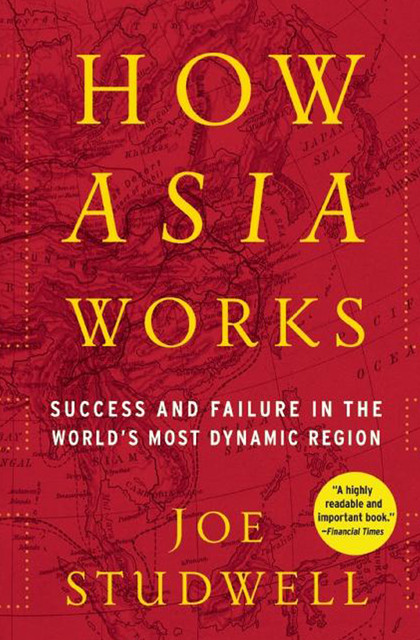“A good read for anyone who wants to understand what actually determines whether a developing economy will succeed.” —Bill Gates, “Top 5 Books of the Year”
An Economist Best Book of the Year from a reporter who has spent two decades in the region, and who the Financial Times said “should be named chief myth-buster for Asian business.”
In How Asia Works, Joe Studwell distills his extensive research into the economies of nine countries—Japan, South Korea, Taiwan, Indonesia, Malaysia, Thailand, the Philippines, Vietnam, and China—into an accessible, readable narrative that debunks Western misconceptions, shows what really happened in Asia and why, and for once makes clear why some countries have boomed while others have languished.
Studwell’s in-depth analysis focuses on three main areas: land policy, manufacturing, and finance. Land reform has been essential to the success of Asian economies, giving a kick-start to development by utilizing a large workforce and providing capital for growth. With manufacturing, industrial development alone is not sufficient, Studwell argues. Instead, countries need “export discipline,” a government that forces companies to compete on the global scale. And in finance, effective regulation is essential for fostering, and sustaining growth. To explore all of these subjects, Studwell journeys far and wide, drawing on fascinating examples from a Philippine sugar baron’s stifling of reform to the explosive growth at a Korean steel mill.
“Provocative . . . How Asia Works is a striking and enlightening book . . . A lively mix of scholarship, reporting and polemic.” —The Economist


